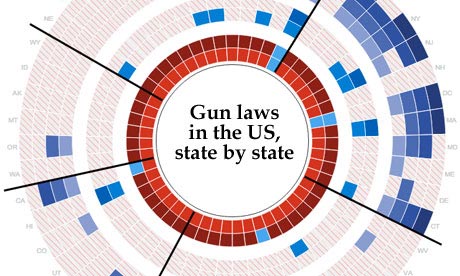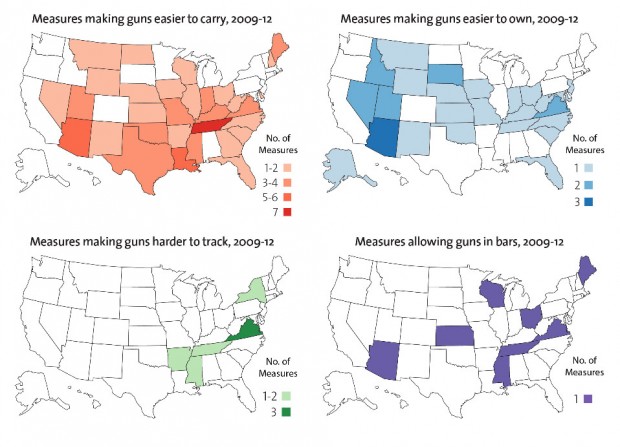Gun control advocates say yes. Gun rights folks beg to differ.
Big surprise on that one.

The Law Center to Prevent Gun Violence, an advocacy group pushing for tougher regulations, assigned every state a grade based on 29 different policy approaches to regulating firearms and ammunition. California topped the list with an A-. New York, which now requires background checks for ammunition sales, has since surpassed it in the toughness of its gun laws. It's the first state to enact such legislation following the Newtown shooting. And efforts in a handful of other states -- including California and Colorado -- to strengthen gun laws are already underway.
The Center points to 2010 statistics showing that seven out of 10 states with the strictest regulations also had that lowest gun homicide rates.

But gun rights advocates opposed to tighter regulations argue that this correlation is inconclusive and misleading. They commonly counter that stricter regulations don't do anything to prevent criminals from getting ahold of guns - they simply prevent law abiding citizens from being able to protect themselves. Many also point to states like Maine, which has some of the loosest regulations in the country (it received an F grade by gun control groups, but also has among the lowest gun homicide rates in the country). On the contrary, they argue, the strict gun laws in cities like Chicago and Washington D.C. have failed to prevent those rising homicide rates in those places.
